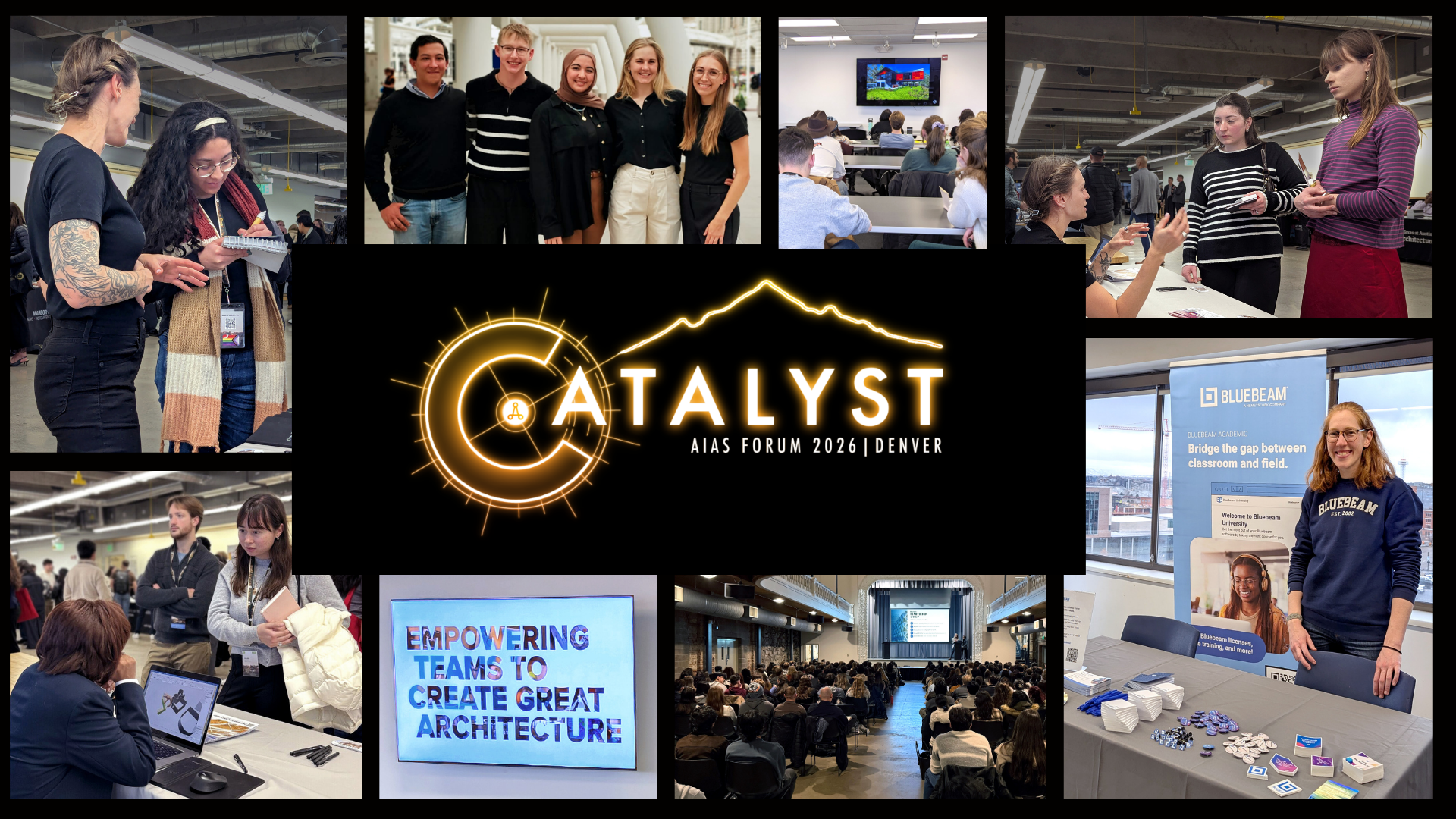What Are the Next-Generation Construction Skills?
The building sector offers a large amount of untapped potential in many aspects. Digitalization, sustainability, and efficiency are the biggest topics for the industry. To prepare for these shifts in our industry, it is crucial to equip both leaders and individuals with the right toolset.
Author
Matt Wheelis
SVP Strategy for the Build & Construct Division at Nemetschek Group
This article belongs to the collection Quality & Efficiency
To the topic pageFrom 3D intelligence to AI, to supply chain management, and jobsite logistics, tomorrow’s construction leader needs to be equipped with these skills — and more — to thrive in the industry.
The building sector offers a large amount of untapped potential in many aspects. Digitalization, sustainability, and efficiency have been the biggest topics for the industry over the last few years and will continue to be going forward. To prepare for these shifts in our industry, it is crucial to equip both leaders and individuals with the right toolset. Digitalization is a key tool, but it requires a mindset shift in the industry – and the younger generation is one of the main drivers for this shift.
The Philosophy of Digitalization
The good news is that – as everyone has experienced in the last few years through remote teamwork and video conferences – the pandemic has accelerated the adoption of digitalization. Our industry was no exception, with research estimating that the pandemic brought digitization forward by about 3 years. Companies across the AEC/O industry quickly discovered the benefits of digital solutions.
There is a great push for the general adoption of digital tools in the AEC/O industry, but, sometimes rushing to adopt a technology can be a case of wanting too much, too fast. Instead, companies need to build an understanding about digital tools first, and then match these tools with internal skillsets. The focus should be on the skillsets related to project processes, problem solving, communication, information handling, and quality assurance. It’s also important to embed the right culture – engaging teams on the solutions they need, encouraging testing and innovation, and investing in training.
That is the one prerequisite for a successful path to digitalization. There are many benefits to be achieved, but often digital solutions are implemented ineffectively. This leads to keeping work activities in silos rather than sharing information amongst the project team.
But what if we were to dig deeper – looking not only into how companies can digitalize- but also into the skillset that is required to be successful in an industry that is confronted with budget and time overruns, high carbon emissions, and volatile prices for building materials. This raises the question of what construction skills are relevant for the future. What classes are today’s students overlooking or what skills are not being taught that will be needed in the industry in the decades ahead? What does the jobsite of the future look like? And what are the essential skills that will hoist the next generation to the top of the pile in the future?
3D Intelligence
The first next-generation skill that comes to mind is virtual 3D intelligence – the ability to imagine and understand concepts through digital models. A generation ago, to prepare for a life in construction, employees learned how to read blueprints: how to interpret the points, lines, and arcs on a set of plans and use that understanding to execute the construction project. Tomorrow, fluency in operating within a 3D virtual world will be critical, not only to those creating and coordinating the models, but also for those in the site office and field executing the work. All of those lifelike 3D videogames kids play may be relevant to the future, after all.
Computer Programming and Integrated Solutions
One area that may not seem obvious is to gain skills in computer programming and software program integration using application programming interfaces, or APIs, which are the mechanisms that enable two software components to communicate with each other. This probably feels like an unnecessary skill for managing construction projects, but looking into this, you will find that there are so many solutions available for specific tasks in construction. Early-career professionals could accelerate their own careers by “hacking” together integrated solutions to solve problems and access data.
Just as the previous generation benefitted from fluency with spreadsheets and database-oriented software, tomorrow’s construction professionals will need to be fluent in the concepts of artificial intelligence (AI) and machine learning. Although these innovative technologies have been largely portrayed as robots taking over human jobs, this will not be the case. Instead, it’s far more likely that something like artificial intelligence will be used to complement human ingenuity, not replace it. Think of AI as the type of technology that automates and streamlines repetitive, mundane tasks so construction workers can spend more time on complex, high-impact work.
Those who understand how to harness AI concepts for business process automation and decision support will be able to spend more time building and less time gathering and interpreting data.
Supply Chain Management
Another skill essential for the future construction professional will be understanding and effective management of supply chains. The movement of construction materials is incredibly complex. Every project arguably has a unique supply chain to source labor, equipment, and building materials.
But, as the COVID-19 pandemic showed, supply chains can become vulnerable when they break down, adding to the risks of a construction project. As a result, construction leaders have aimed to make industry supply chains more akin to manufacturing, where materials and even parts of structures are assembled in a factory before being transported to a jobsite for final placement.
Understanding how supply chains are evolving, and their manufacturing-like components, will be crucial for the next generation of construction workers.
Jobsite Logistics
The last skill that will be essential for the construction professional of tomorrow is logistics. Just as industry supply chains have recently become more complex, so too have the logistics that make a jobsite productive and a project ultimately successful for its owners and investors.
Managing on-site logistics is a skill that is already – and will continue to be – paramount to the future success of the industry. Not properly managing site logistics can lead to a tremendous number of problems, including construction waste and other risks that can affect the timeline and, ultimately, bottom line of a project.
Moreover, nascent technologies, like virtual and augmented reality and other metaverse-like environments, have already begun to show promise in pre-construction jobsite logistics, adding yet another skill for future construction leaders to learn to be successful.
Future Forward
Of course, none of these skills are a substitute for a thorough and fundamental understanding of how things get built and the physical properties of materials. In addition to learning these likely cutting-edge skills, it is important to encourage all future builders to get hands-on building experience – for example, by volunteering in an organization of choice within the construction industry.
One thing is for sure: the construction industry is going to be far more digital and integrated with technology than it is today – and the speed of innovation is only going to increase over time.





